Karl Sharro is a Lebanese-Iraqi architect, writer and satirist based in London. He is mostly known for his blog Karl reMarks on which he published satirical accounts of the Arab uprisings between 2011 and 2015. Karl reMarks is also his satirical Twitter alter ego where he publishes his satirical images and commentary, such as ‘the one sentence explanation for the rise of ISIS’.
He has written for several international publications on issues such as art, architecture, urbanism and politics and discussed them in radio and television broadcasts on the BBC and other media outlets. In 2011 he presented his argument for open borders in a TedX talk in London. He is currently working on an upcoming novel.
Karl Sharro uses satire to express his point of view regarding what’s wrong with the Arab World. He wittingly critiques events and perceptions without preaching or acting as a social reformer. Laghoo has interviewed Karl Sharro. In the interview, he eloquently elaborates on addressing taboos in satire, self censorship, and the way “cultural elites” in the Arab World perpetuate taboos.
Among our cultural elites the instinct to defend free speech is lacking.
1. Do you think that writing about taboos is really necessary?
I think it’s necessary from my point of view, but I don’t consider it a prerequisite for good writing. I think there’s too much emphasis placed on the instrumentalisation of literature and art broadly today, and there’s a pressure to make writers contribute to social and political agendas which I find counterproductive. Part of this is asking writers to perform the role of social reformers which I am not comfortable with. I think writers should be free to explore their own ideas without this social pressure. We see this particularly in Arabic literature, where there’s an obvious disdain for artists that stray from exploring social and political causes. That is actually an attitude that needs to be opposed.
However, given the fact that I mostly write satire, I have to address taboos and social restrictions in my work. These however don’t have to be the obvious taboos that we generally agree in the region are the ones that deserve confronting, religion for example, because I think we’re living in a strange moment with our cultural elites creating new taboos that they guard as zealously as conservatives do with their own prohibitions. This sense of suffocating consensus in my opinion deserves challenging as much as inherited ideas and traditional forms.
2. Is there a specific controversial subject you prefer to write about?
I started writing satire after the beginning of the ‘Arab Spring’ so my subject matter was largely confined to this historic moment and its two key features, authoritarian regimes and the subsequent rise of radical Islamic movements. However that turned out not to be the controversial side of my writing. Surprisingly, what was more controversial is my defence of the value of free speech and free expression. There is a notion circulating today, again among Arab elites, that those are alien concepts that are Western by nature and therefore inapplicable to our region and our situation. This I find hugely disappointing, particularly given the number of Arab authors, and others from the region, who have been imprisoned, censored, attacked and killed for their ideas.
And yet, bizarrely, among our cultural elites the instinct to defend free speech is lacking, despite this grim reality. And this is why I find myself coming back to this topic and challenging this new form of self-censorship that is being promoted. I have to note however that this is the influence of contemporary western education rather than an innate Arab ability to accept free speech. As we see free speech being abandoned in the West, and it’s fashionable to do so in academic circles, our elites transport those ideas to the region uncritically.
3. Is there a controversial topic that you think should not be tackled, and that you must not write about or express?
The short answer is no, definitely not. As soon as we stipulate such a condition, we create a perverse network of censorship and self-censorship, willingly or unwillingly, both by restricting ourselves and giving external authorities the power to control writing. It is short-sighted for any writer to accept such a condition. But of course I acknowledge that reality is very difficult, and it’s much easier for me to be brave about this from the safety of London than for people who live in the Middle East. But look at our recent history and you see writers who have written and published incredibly brave books while living in the region. The Syrian novelist Haidar Haidar for example, and many others of course.
I think we’re living in a strange moment with our cultural elites creating new taboos that they guard as zealously as conservatives do with their own prohibitions. This sense of suffocating consensus in my opinion deserves challenging as much as inherited ideas and traditional forms.
4. Do you think about the reader or the audience when you write?
This will sound like a cliché, but I really write for myself, particularly when I am writing humour or satire. It doesn’t mean that I don’t care about readers, but the pleasure is writing for my own enjoyment and I always think that if I am sincere about it then that will be reflected with how a piece is received. However, that’s not always the case as I discovered. It’s easy to cross the line and become self-indulgent sometimes and in retrospect such pieces lose their appeal even for me.
On the other hand, when I started writing I used to worry a lot about how people will receive it, how they will respond, will they get what I am trying to do, particularly if it was an easy to misinterpret piece of satire. My instinct was to publish and see what happens, and I was constantly surprised by how well the pieces were received and by the audience getting the context. With time, I learned to relax and trust the readers’ judgment.
5. How do you balance between the real and the metaphorical in your writing?
I am fortunate that in writing satire, the distinction is important in itself because the target is always clear. The only risk is when people don’t get the satirical intention, but that is always fun in its own way. That you can create an alternative reality that is convincing to some people, that definitely has its attraction although I never set out to intentionally trick people, I think that’s too crass.
There’s an enjoyable aspect to playing on this relationship between metaphor and the real in writing which I explored in pieces like one I wrote which was a contemporary version of Kalila wa-Dimna. Here the aim wasn’t only satirising Arab dictators but also spoofing the genre of allegorical writing that still persists in some form in our region. I always had a problem when people say this form of allegorical writing was used to elude censorship but I also think ‘how stupid do those censors have to be not to get a story about a sheep and a tyrant lion’ for example. I think in my case, taking aim at our literary heritage is part of the process.
6. Do you feel that you betray your idea sometimes because of indirect writing?
I would be lying if I said no. This I think is a particular problem of social media, perhaps in retrospect this close relationship between the writer and the audience wasn’t a good idea because that carries with it a sense of restriction and control. Not necessarily an explicit one, but the more you directly exposed to the audience, the more it starts to create subtle mechanisms of self-censorship, a sense that you don’t want to disappoint people who admire you. It is really perverse and I am not sure I have found an answer to that.
7. In terms of priority in cultural influence, how do you classify the following controversial themes: religion, politics, and woman/gender?
In our region in particular they are all interconnected of course. But to be honest you can get writers being vocal about religion and politics and you don’t necessarily see that level of outspokenness about gender. It is still considered more heroic among our cultural elites, broadly speaking, to be rebellious about religion and politics than it is about gender. Of course many will pay lip service to gender equality but I don’t see it translating as a genuine preoccupation, except in certain cultural niches. And even then, there is too much influence of the Western gender concerns sometimes than the reality of life for women in the Arab world.
8. Have you been subject to criticism or terrorism before because of addressing controversial topics in your works?
Much criticism, a lot of it deserved, but not really any physical intimidation. Part of this is due to the fact that I live in the UK, and part of it because I write mostly in English and as I always say it’s not that easy to be offended by a one-thousand word humorous post compared to say a cartoon or a video.
9. Can the controversial and the sacred coexist in the Arab world?
Today that seems unimaginable, but I think we get sucked in by the reality of our time and we forget how different things were even a few decades ago. I recently watched a video of a respected reciter of the Quran singing a song by Mohamed Abdel Wahhab in the 1960s, which feels completely unimaginable today. The mistake would be to fall into the trap of nostalgia rather than thinking that a different past is also a glimpse of how a different future could be. We’re going through a violent transitional moment in which every aspect becomes magnified and we lose perspective, but I am optimistic about our ability to recreate collective political and cultural frameworks to negotiate those tensions, much like other societies have done.
Interviewed by: Ashraf Zaghal


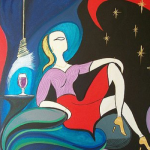

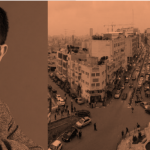
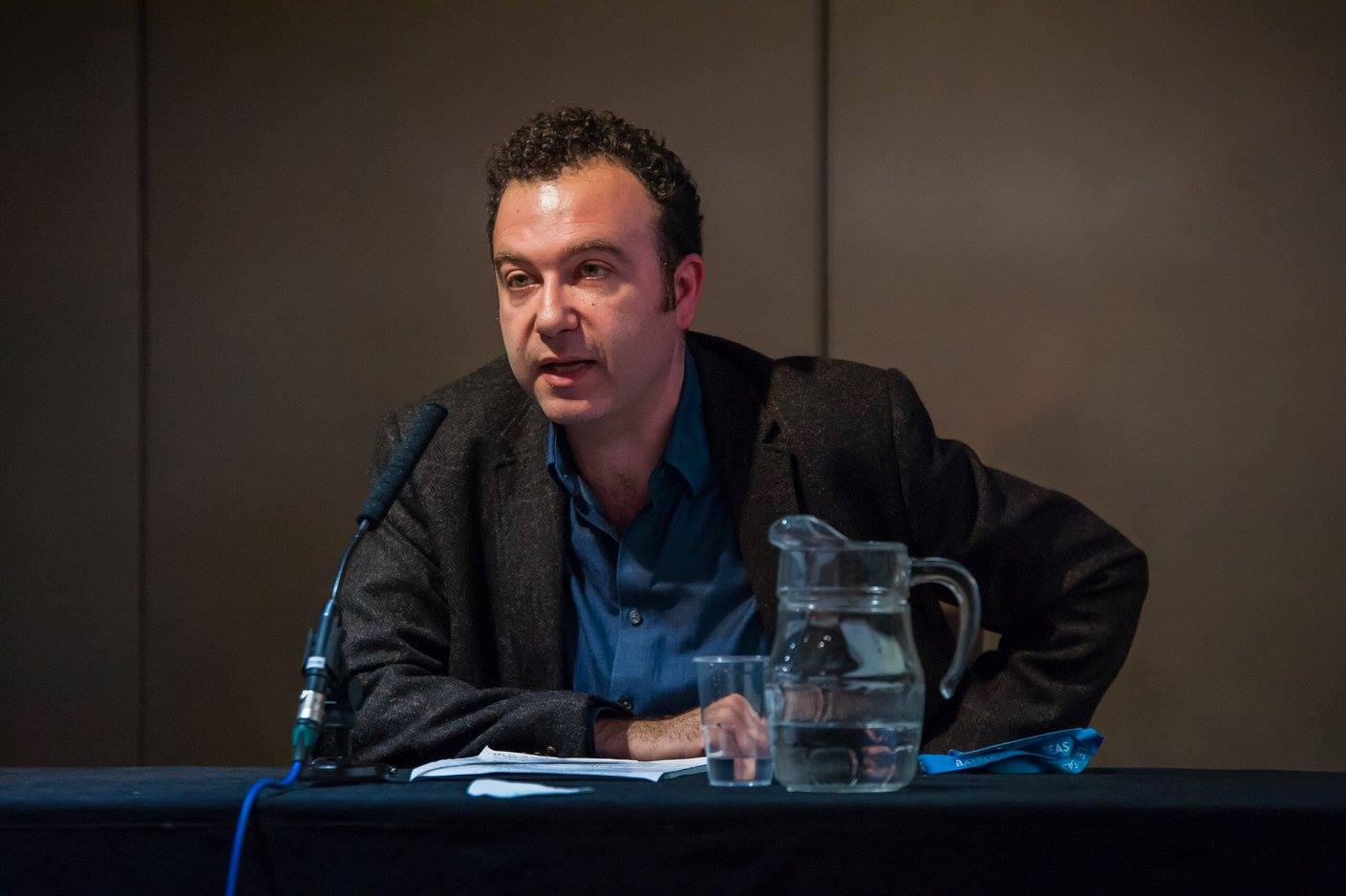
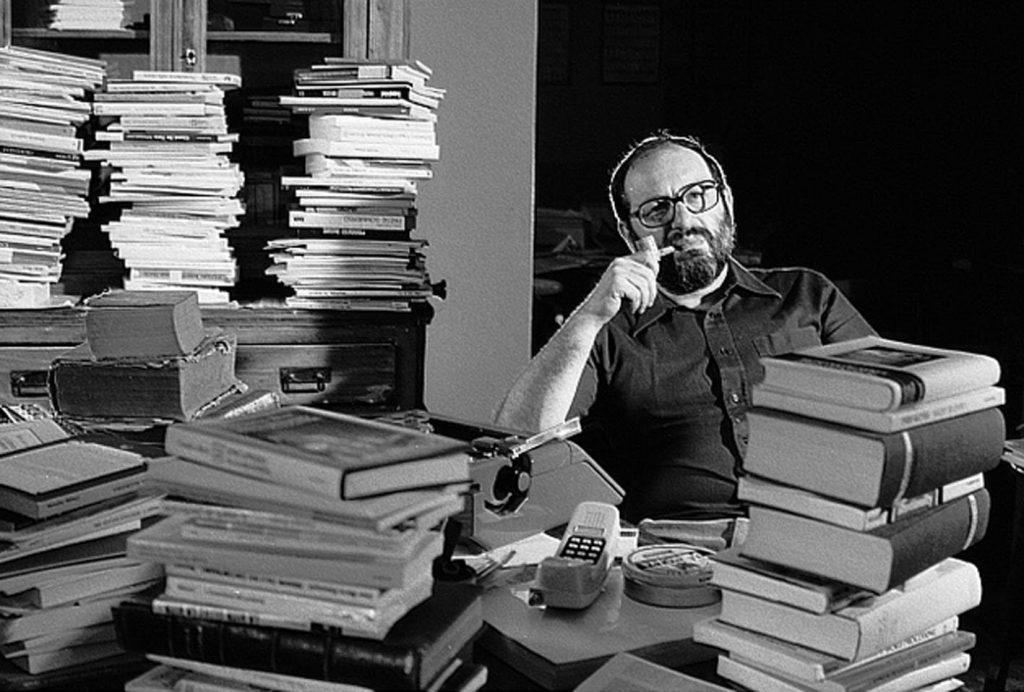
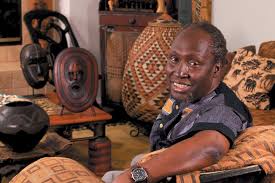
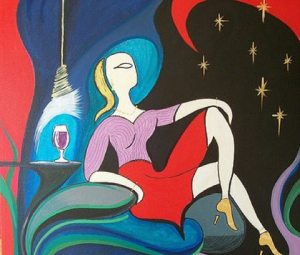

The Writer and the Taboo: with Naser Al Zafiri
The Writer and the Taboo: with Raji Bathish
The Writer and the Taboo: with Liwaa Yazji